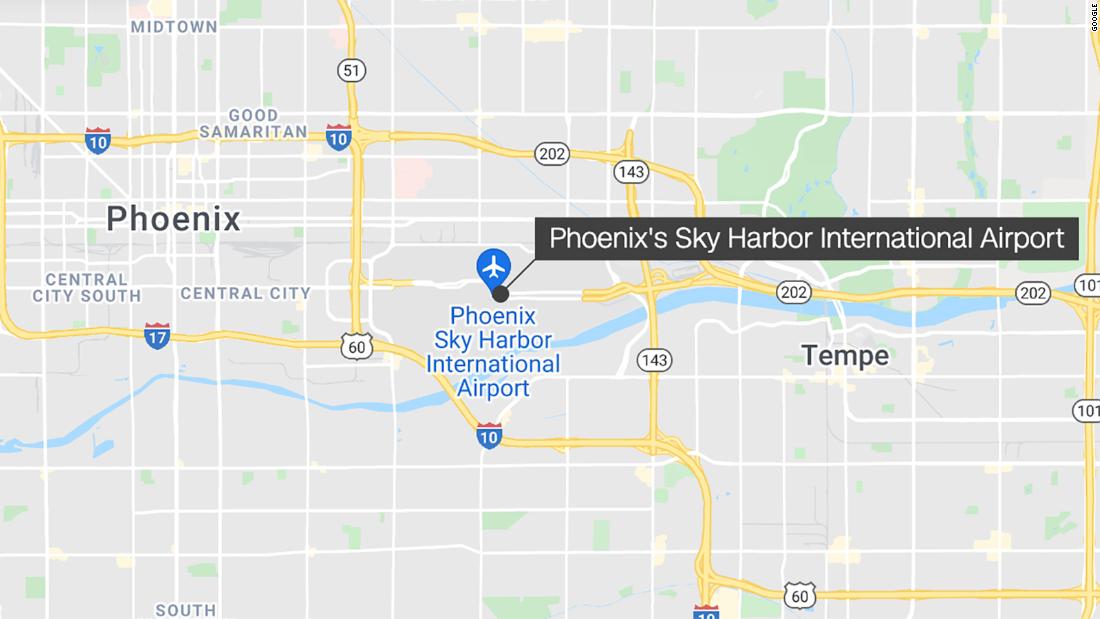Researchers evaluate how the pandemic has affected jobs in major U.S. metropolitan areas -19 pandemic depicted on American careers in majors are metropolitan area. The white paper analyzes the results of the university’s first annual Career Optimism Index ™ study and also examines barriers to career advancement and workers’ perceptions of the future of their careers by geographic location, “said Mansureh Kebritchi, Ph.D. and Ryan Rominger, Ph.D. of the University of Phoenix’s College of Doctoral Studies. “A critical purpose in reviewing these findings was to understand how universities can help American workers overcome their career barriers by learning about their needs and Provide support. “The labor market shock of COVID-19 was greater than the global financial crisis of 2008. By April 2020, 15 percent of the US labor market had disappeared, compared with 6 percent during the Great Recession. it is not complete, as only about 52 percent of the jobs lost Places have returned and the pace of recovery has slowed as COVID-19 cases increased dramatically in the fall of 2020, requiring additional closures and restrictions, Study found that the disproportionate economic impact of COVID-19 on different geographic regions was different from the dominant industries depend in these regions. To examine the career status of American workers, the paper looks at six of the most affected industries: restaurants and bars, travel and transportation, entertainment (e.g. casinos and amusement parks), personal services (e.g. daycare and hairdressers), sensitive Retail (e.g., department stores) and sensitive manufacturing (e.g., aircraft and automobile manufacturing). History Continues The hardest hit states were Nevada, Hawaii, Florida, and South Carolina, all with over 23 percent of their employment in these hard-hit states Industry sectors. On the other side of the spectrum, Nebraska, Iowa, Arkansas, Minnesota and Washington DC, with less than 18 percent of employment in these sectors, were least affected by career lapse, work-life balance and fear of changing jobs. For example, workers in San Francisco (41%) and Miami (40%) were the most likely to report that their careers had derailed due to COVID-19. Metropolitan areas where the work-life balance of workers was most affected were Miami (63%), New York City (61%), Houston (60%), and San Francisco (59%). Areas where workers were most concerned about their jobs being replaced by technology were Washington DC and Miami (both 30%), Orlando (28%), Houston (26%), Atlanta, Los Angeles, and New York City ( every 24%). “There is a serious need for skills development and support to meet the challenges faced by today’s workforce,” said Kebritchi. About 35 percent of Americans said they did not have access to opportunities to develop new professional skills. Lack of access to resources to develop new skills was most felt in Sacramento (37%), Philadelphia, and Houston (both 36%). Access to the right resources to meet career goals was also an issue, with Phoenix (32%), Philadelphia, Detroit, San Francisco, San Jose, and Orlando (all 27%) having the greatest needs. The type of career support identified most often as needed was connecting with others in the field of interest (55%), finding a mentor / lawyer (54%), finding training programs (52%) and creating / updating resumes ( 50.). To read the full white paper, visit: https://www.phoenix.edu/content/dam/altcloud/career-institute/JobMarket-Geographical-Impact-of-Pandemic-MKebritchi2.25.21-Formatted.pdfAbout The College of Doctoral Studies, The University of Phoenix’s College of Doctoral Studies focuses on today’s demanding business and organizational needs, from addressing critical social issues to developing solutions to accelerate community building and industry growth. The college’s research program places students at the center of an effective ecosystem of experts, resources, and tools to prepare them to assume leadership roles in their organization, industry, and community. Under this program, students and researchers work with organizations to conduct research that can be applied in real time in the workplace. Via the Career Optimism Index ™ date. The University of Phoenix Career Institute will conduct this study annually to provide insights into current HR trends and to find solutions to support and promote American careers. For the first annual study, more than 5,000 American adults were surveyed about their current attitudes towards their careers, including their concerns, challenges, and optimism about key aspects of their careers, their future advancement. The study was conducted on a diverse, nationally representative sample of U.S. adults among a robust sample to account for gender, generational, racial, and socioeconomic differences, and includes additional analysis of workers in the country’s top twenty media markets to identify geographic Uncovering Nuances. About the University of Phoenix The University of Phoenix is constantly innovating to help working adults improve their careers in a rapidly changing world. Flexible schedules, relevant courses, interactive learning, and Career Services for Life ™ help students more effectively pursue their professional and personal goals while balancing their busy lives. For more information, visit phoenix.edu. View source version on businesswire.com: https://www.businesswire.com/news/home/20210923005901/en/ContactsSharla HooperUniversity of Phoenixsharla.hooper@phoenix.edu
[ad_2]
Home Visit Phoenix University of Phoenix College of Doctoral Studies Releases Whitepaper Detailing COVID-19 Pandemic...











